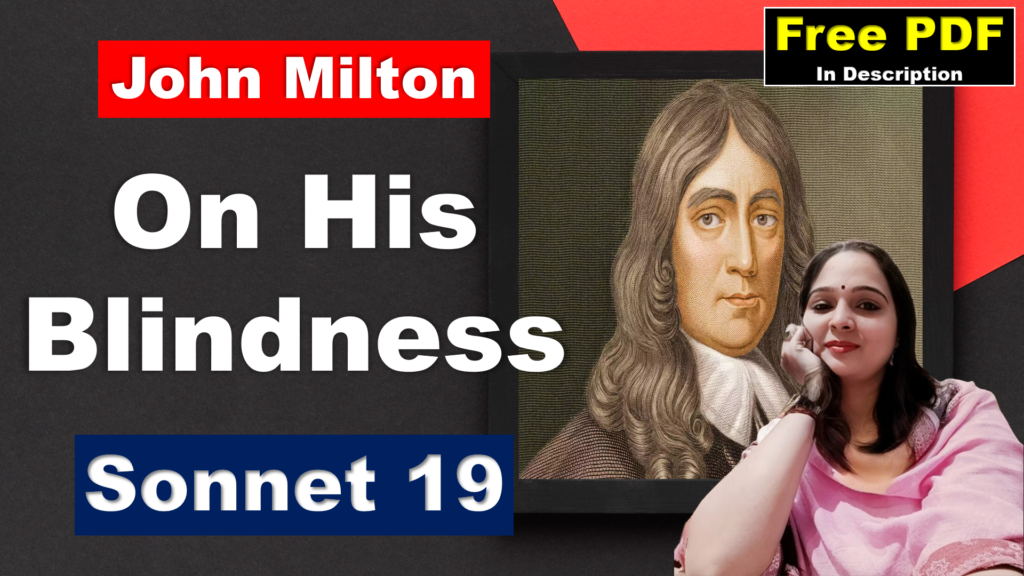
On his blindness by John Milton | Sonnet 19 | When I consider how my light is spent | On his blindness | John Milton | Explanation | Summary | Key Points | Word Meaning | Critical Appreciation | Questions Answers | Free PDF Download – Easy Literary Lessons
On His Blindness
When I consider how my light is spent
Ere half my days in this dark world and wide,
And that one talent which is death to hide
Lodg’d with me useless, though my soul more bent
To serve therewith my Maker, and present
My true account, lest he returning chide,
“Doth God exact day-labour, light denied?”
I fondly ask. But Patience, to prevent
That murmur, soon replies: “God doth not need
Either man’s work or his own gifts: who best
Bear his mild yoke, they serve him best. His state
Is kingly; thousands at his bidding speed
And post o’er land and ocean without rest:
They also serve who only stand and wait.”
On his blindness by John Milton
line-by-line explanation of the poem
Line 1: When I consider how my light is spent
The speaker is reflecting on how he has spent his life, and how much time he has left.
Line 2: Ere half my days in this dark world and wide,
The speaker is aware that his life is half over, and that he is living in a dark and difficult world.
Line 3: And that one talent which is death to hide
The speaker is referring to his gift of writing, which he feels he is not using to the best of his ability.
Line 4: Lodg’d with me useless, though my soul more bent
The speaker is feeling guilty and frustrated, because he knows that he is not using his talent to serve God.
Line 5: To serve therewith my Maker, and present
The speaker wants to use his talent to serve God and to make a difference in the world.
Line 6: My true account, lest he returning chide,
The speaker is afraid that God will be angry with him if he does not use his talent to serve.
Line 7: “Doth God exact day-labour, light denied?”
The speaker is questioning whether God expects us to work all the time, even if we are not able to see.
Line 8: I fondly ask. But Patience, to prevent
The speaker asks this question fondly, but he then turns to Patience for guidance.
Line 9: That murmur, soon replies: “God doth not need
Patience reassures the speaker that God does not need our work or gifts.
Line 10: Either man’s work or his own gifts: who best
God simply wants us to bear his yoke patiently and to trust in his plan.
Line 11: Bear his mild yoke, they serve him best. His state
Those who bear God’s yoke patiently are the ones who serve him best.
Line 12: Is kingly; thousands at his bidding speed
God is like a king with thousands of servants who do his bidding.
Line 13: And post o’er land and ocean without rest:
These servants are always busy working for God, but there are also servants who simply stand and wait.
Line 14: They also serve who only stand and wait.”
These servants are also serving God, even though they may not be as active or visible as the others.





